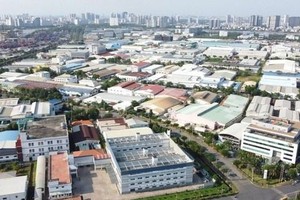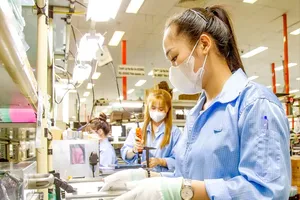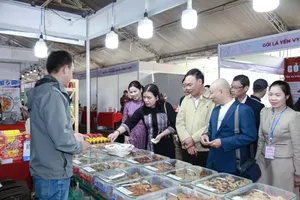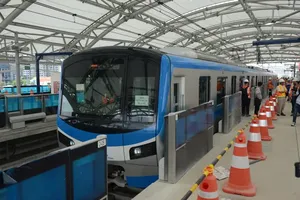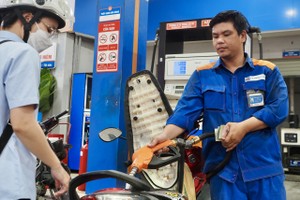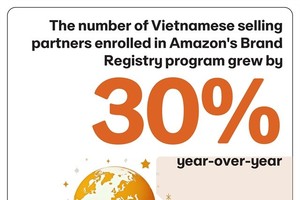Statistics from the Vietnam eCommerce and Digital Economy Agency show an average of 1,500 complaints from domestic consumers each year, of which over 50% are related to online shopping.
Notably, most complaints involve the quality of goods, for example the goods received are different from promotional images or contain misinformation on the origin.
Furthermore, the Vietnamese government’s official e-commerce portal in 2020 alone handled over 250 complaints related to suppliers that did not have a business license, failed to make official listing of their sites with competent authorities, and sold low-quality or counterfeited products.
According to the HCMC Market Management Department, anyone can create a fake account to sell goods online and hire freelancing moped riders to deliver them, making it difficult to trace the origin and related warehouses. Many retailer site owners are also based in foreign countries to avoid being discovered and fined.
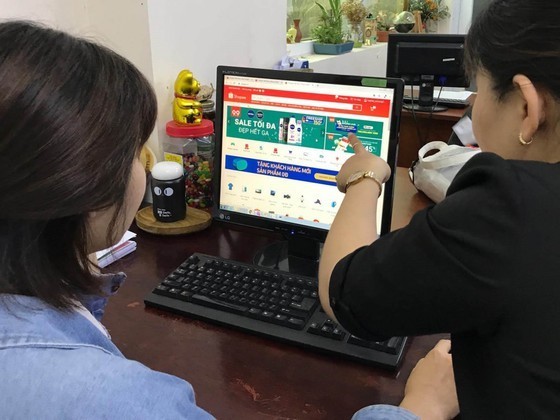 Consumers looking at an online shopping site. (Photo: SGGP)
Consumers looking at an online shopping site. (Photo: SGGP)
Fortunately, the ASEAN Coordinating Committee on Ecommerce has issued regulations on online retails with clear guidelines on the responsibilities of the suppliers and selling platforms meant to protect consumers’ interest.
Meanwhile, the Vietnam eCommerce and Digital Economy Agency has listed their own website where consumers can report scamming suppliers and online shopping sites.
Regarding the law, the General Department of Market Management proposed to have relevant regulations adjusted to force suppliers and online shopping platforms to provide sufficient data on their goods as a basis for handling violations.
Meanwhile, the HCMC Police and Market Management Department officially started together to combat smuggling, trade fraud, counterfeiting and other violations regarding consumers’ goods in HCMC.
Along with authorities’ preventive measures, several online shopping platforms have set up retail outlets in popular shopping centers for consumers to purchase genuine goods.
